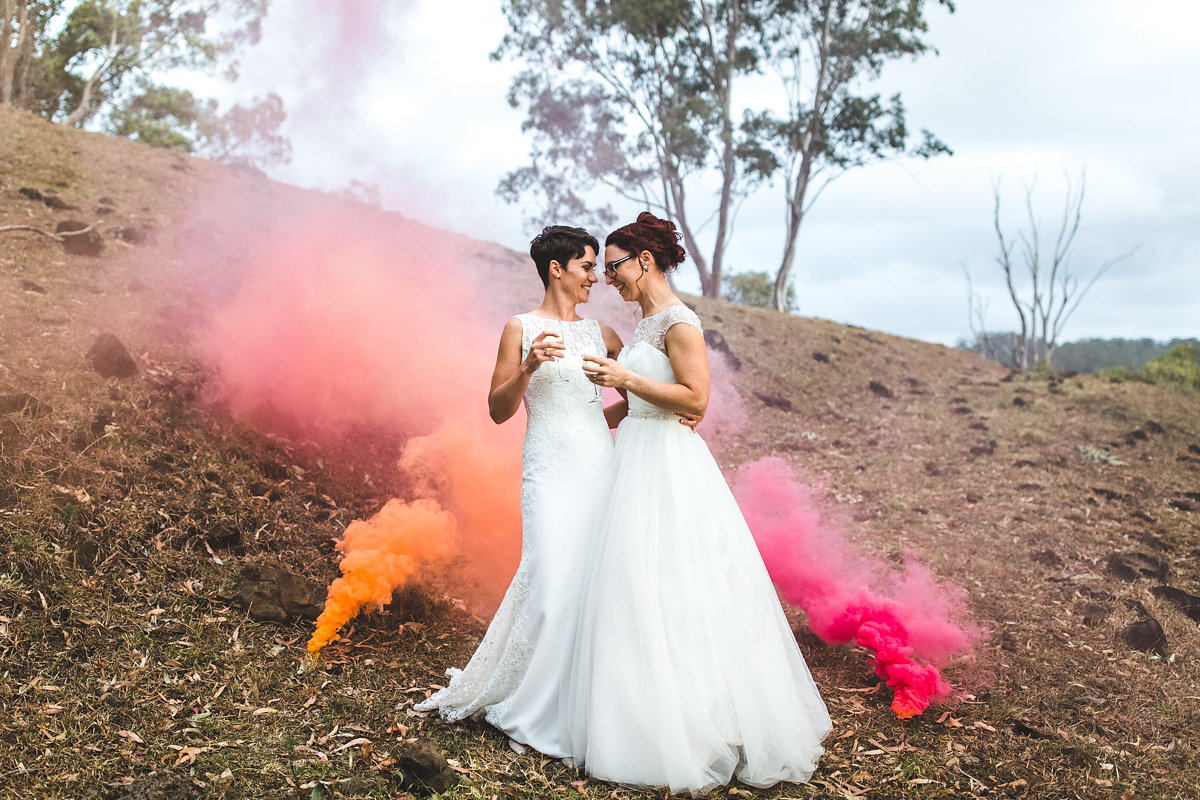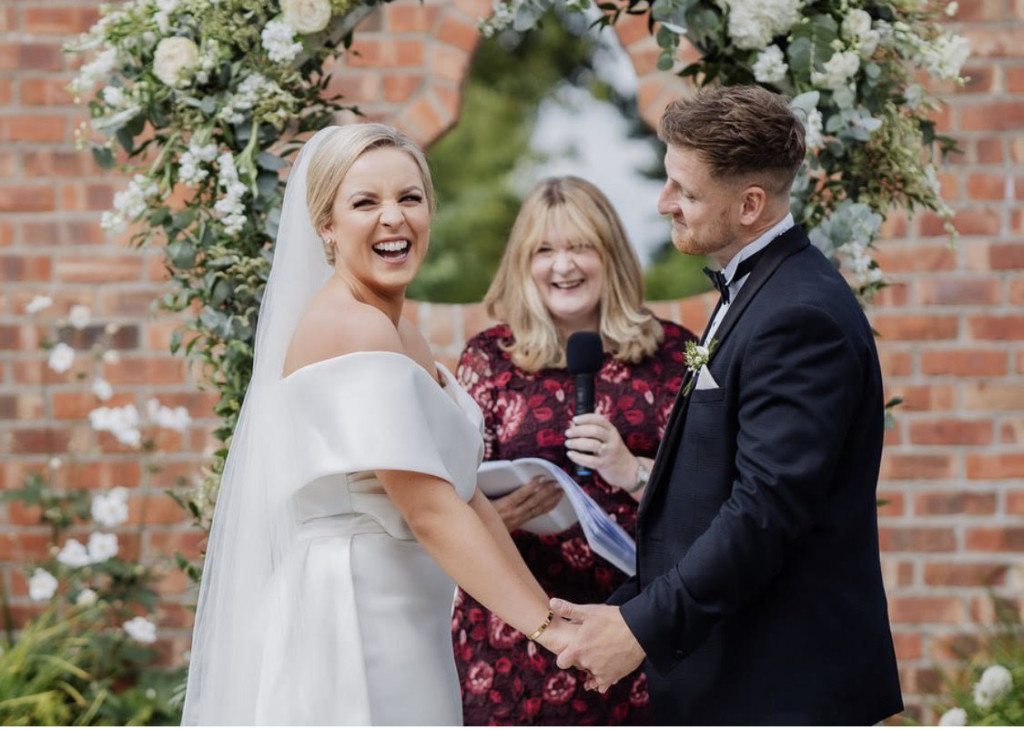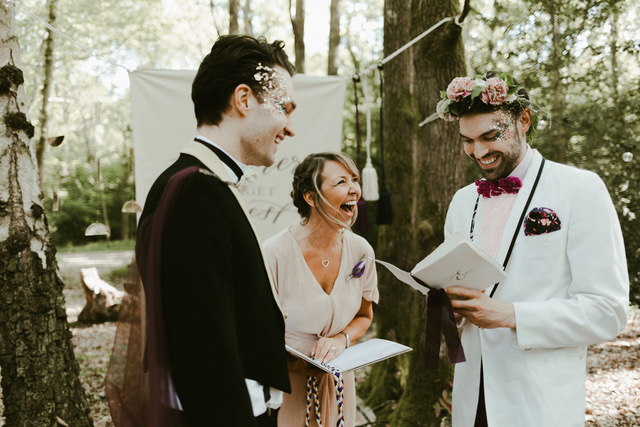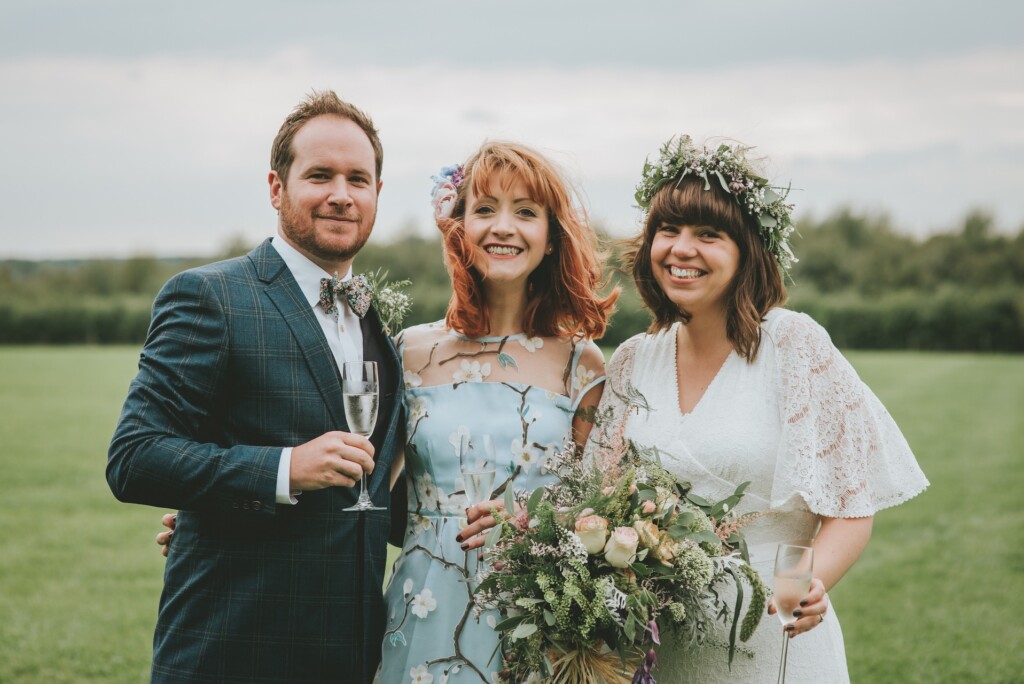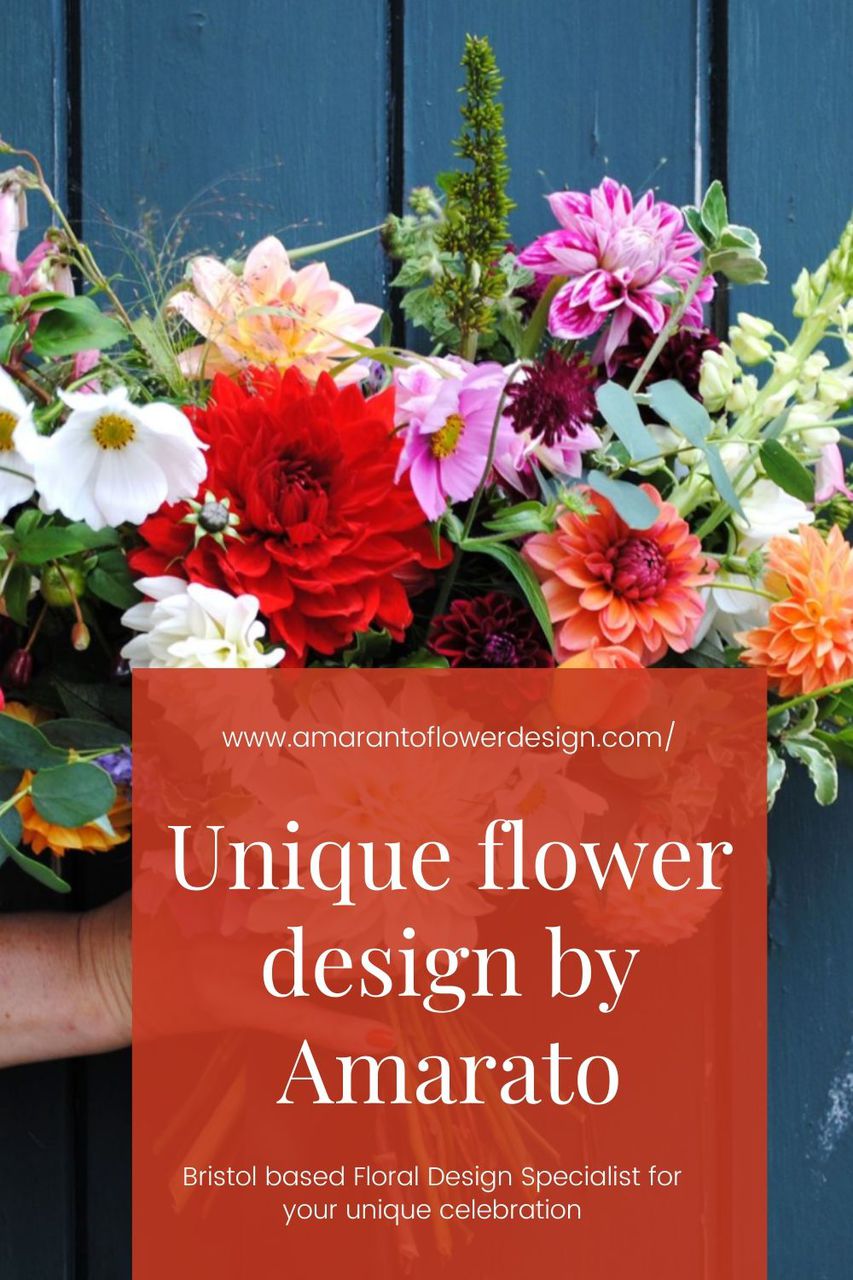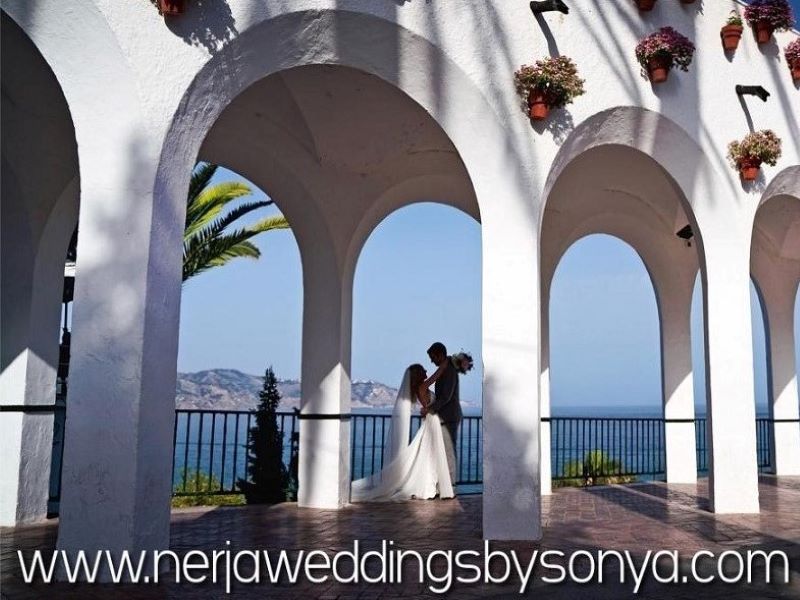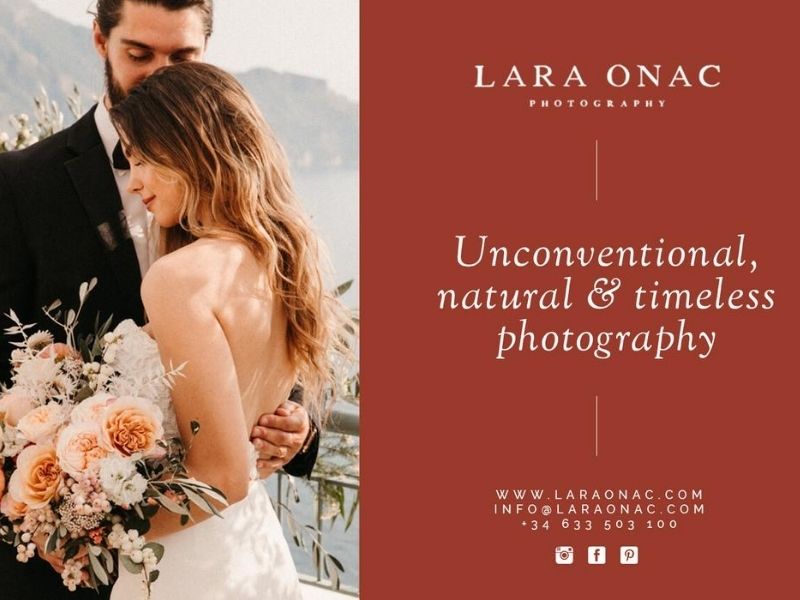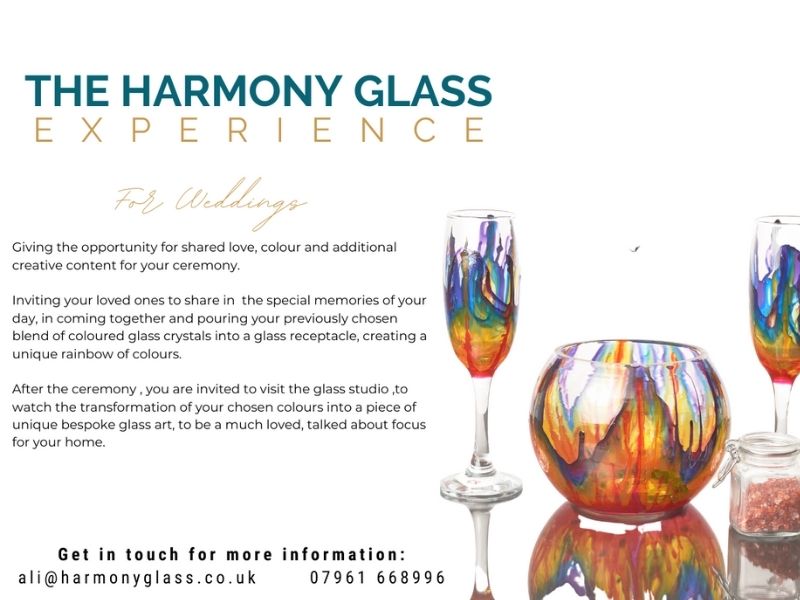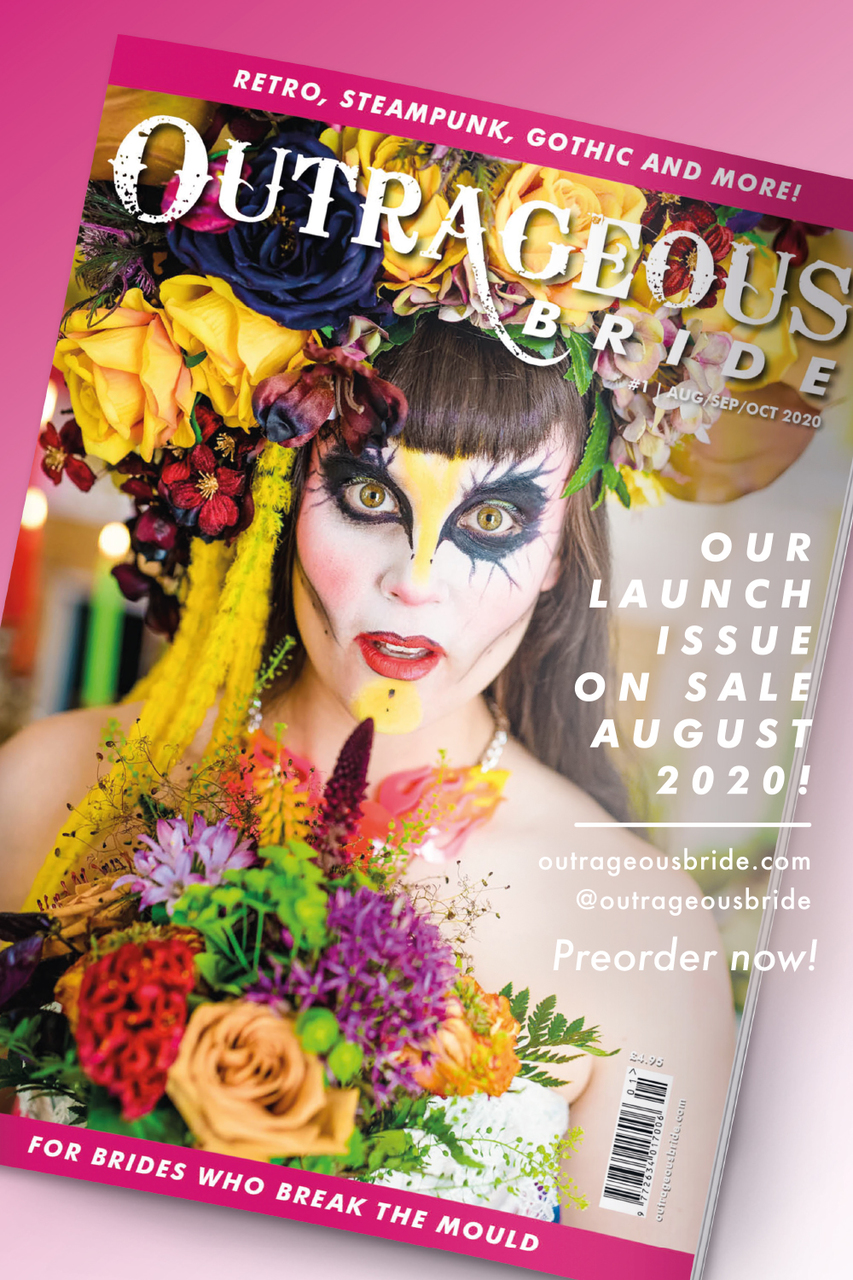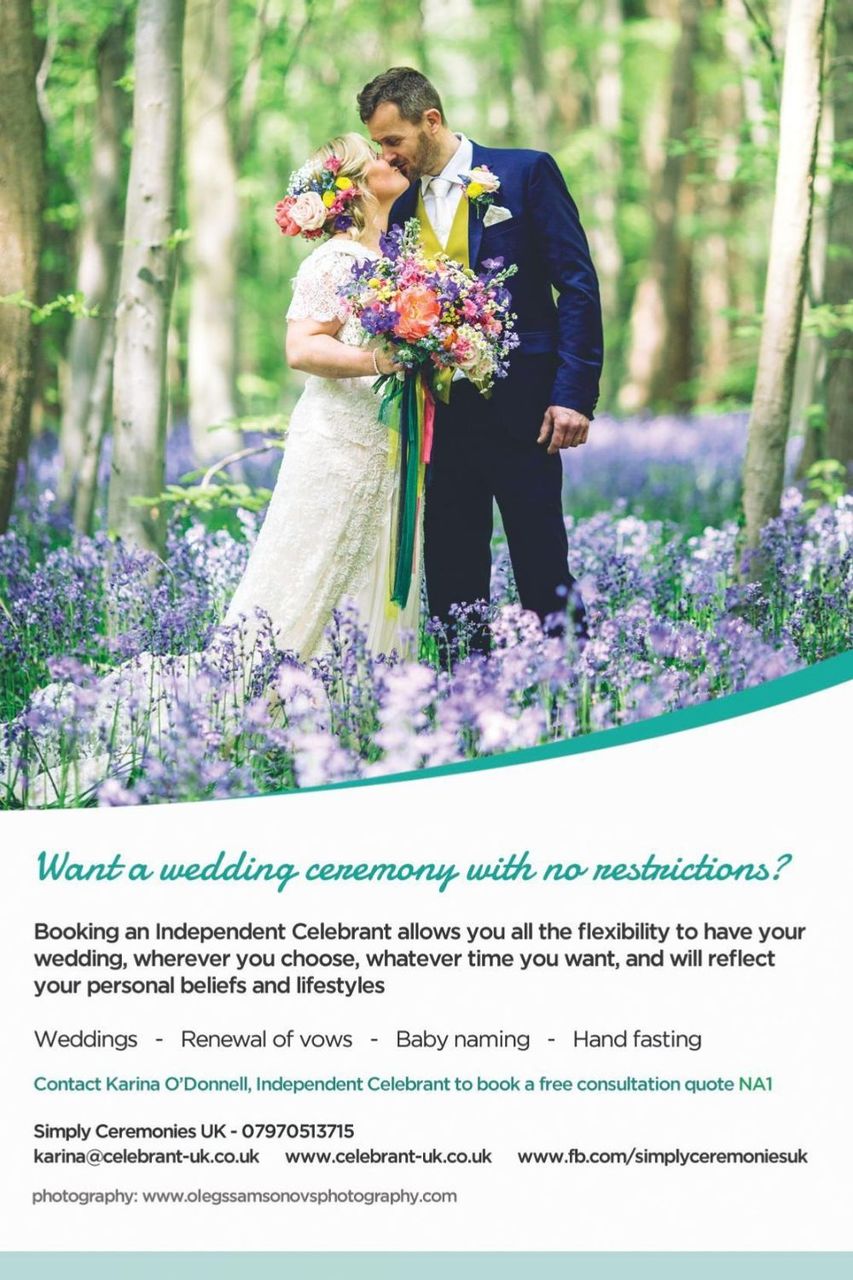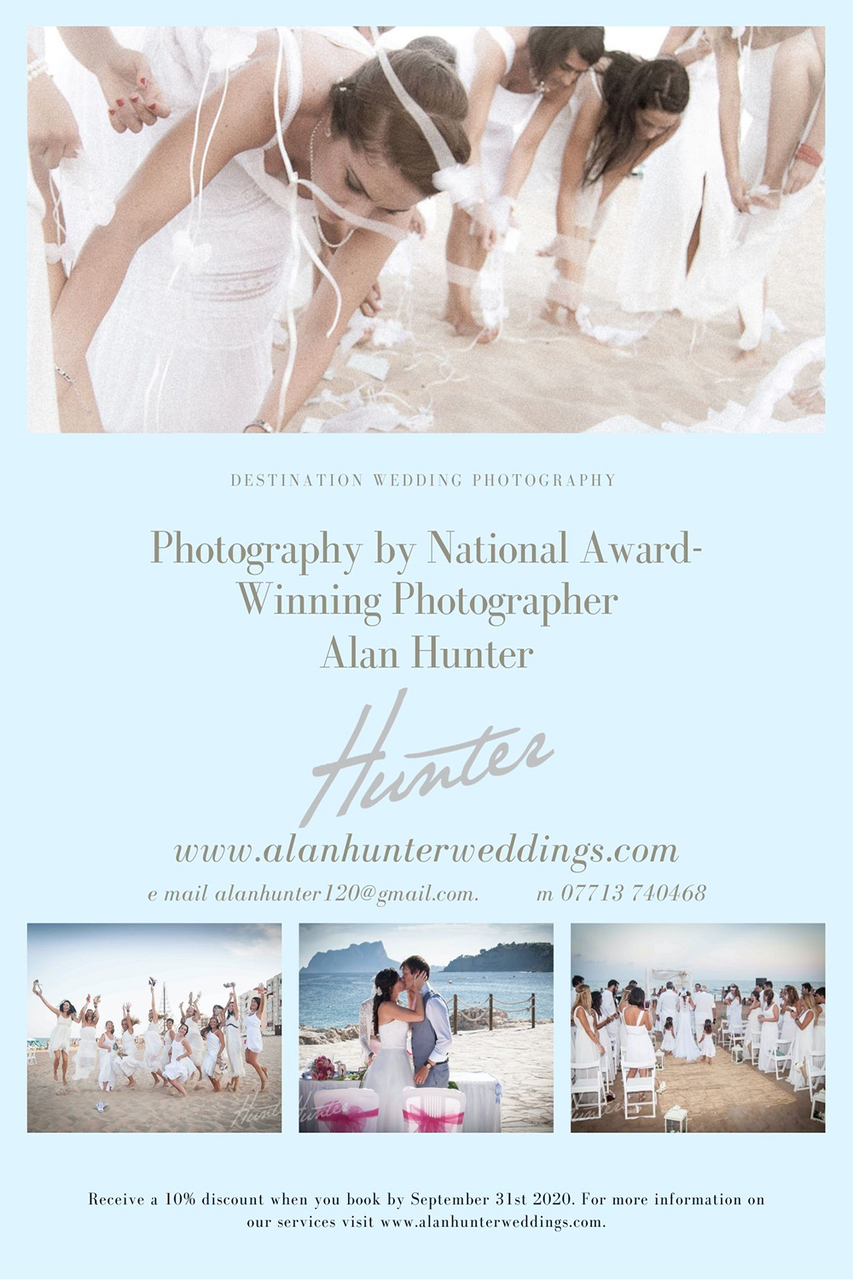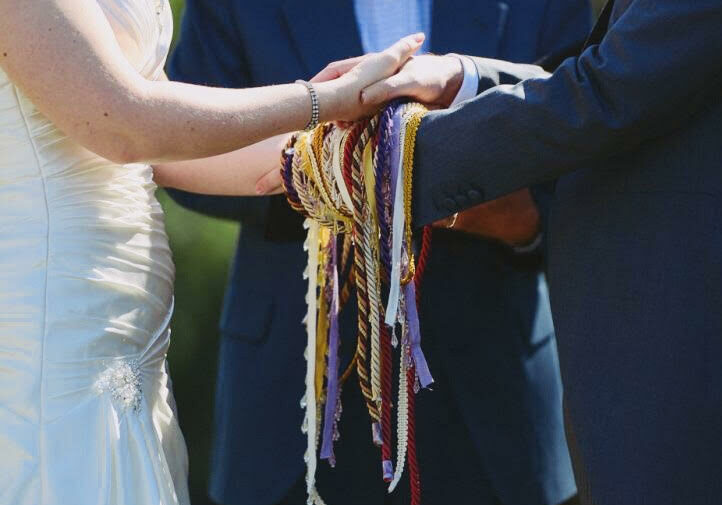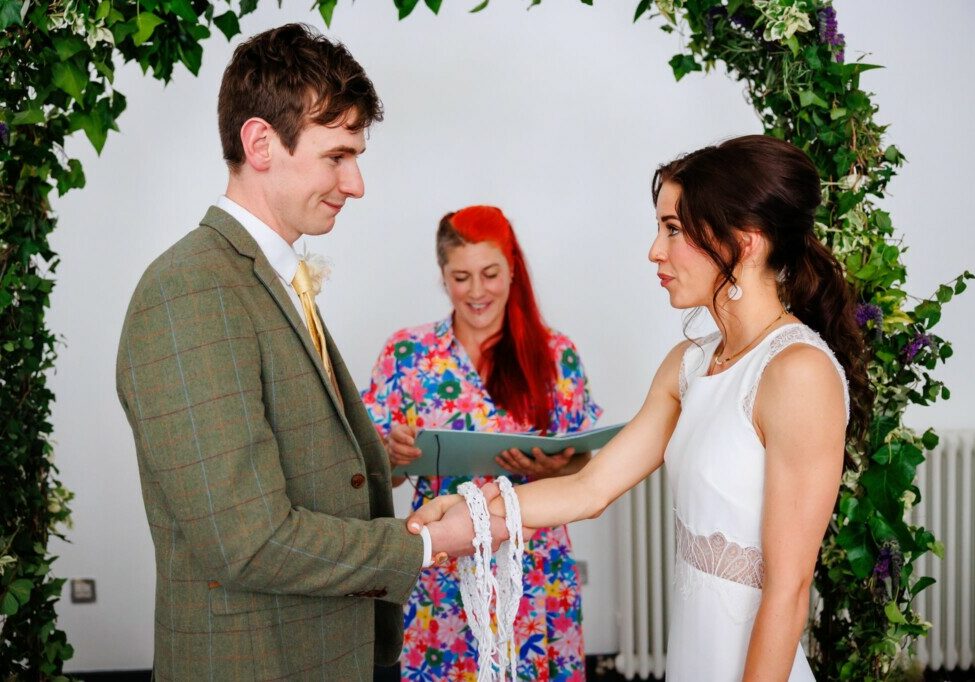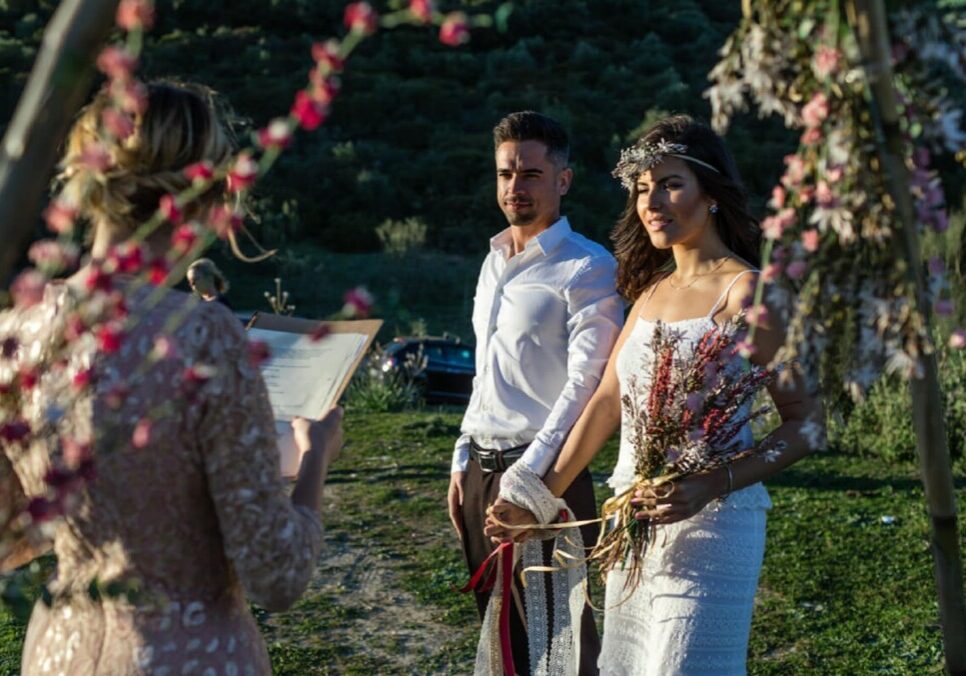So the wait is over, the review of the Marriage Act 1949 has been completed and recommendations passed over to government.
And guess what? It’s positive for Independent Celebrants in England and Wales and for couples across the country.
For 70 years, the marriage act has excluded the recognition of multi-faith, non faith, secular or just the freedom to choose how to marry – forcing many couples to have two ceremonies.
The proposed law change suggests that the officiant is licensed to wed, not the religion, the faith or the location.

This is powerful news for England and Wales based celebrants, and a step in the right direction for the rest of the UK to take notice and reform in the same way.
These recommendations are now being presented to government who have a year to respond. From there, significant law change could take up to another year or two so it won’t be fast action change.
Our CEO (and celebrant) Jennifer Constant has this to say about the news today:
‘This is a step in the right direction in supporting thousands of couples who desire to have their wedding in a way that respects their beliefs and choices. It will take some time to implement, and we are yet to know the full details and have any assurance of government approval, however, we are very encouraged by the recommendations. The report appears to be modernising the outdated marriage act of 1949 – a 70-year-old law that does reflect the values and inclusivity that our society desires. We are ready to take on any challenge to make the path to implementation smooth for all celebrants and couples.’

So what happens currently?
If you haven’t been aware of this impending date or perhaps, you’re just not quite sure what this change will mean for you, we’ve written this to help make the road to change a little clearer for you.
Currently, to be legally wed in England and Wales, the marriage act 1949, gives you 3 options.
1. Civil Marriages – You commit to marriage and sign the license in front of a registrar in either licensed premises or at the registry office. The service is restricted by legal content and cannot include any religious content.
2. Jewish and Quaker Marriages – You are Jewish, and you can have your ceremony anywhere as long as you have it signed off by the synagogue’s registrar.
3. Religious Worship – You take your vows in the church you are a member of in front of a member of the clergy.
This begs the question, where does this leave couples with mixed faiths, Muslim, Hindu and Sikh couples, couples who want to get wed in a location that isn’t licensed, couples that have Christian faith but don’t attend church, atheist couples, and couples who want don’t want the standard legal ceremony?
How about couples that don’t want to have their wedding at a licensed location, or who aren’t members of a church?
There are so many individuals left out with the current Marriage Act so you can see why positive reform has been called for!
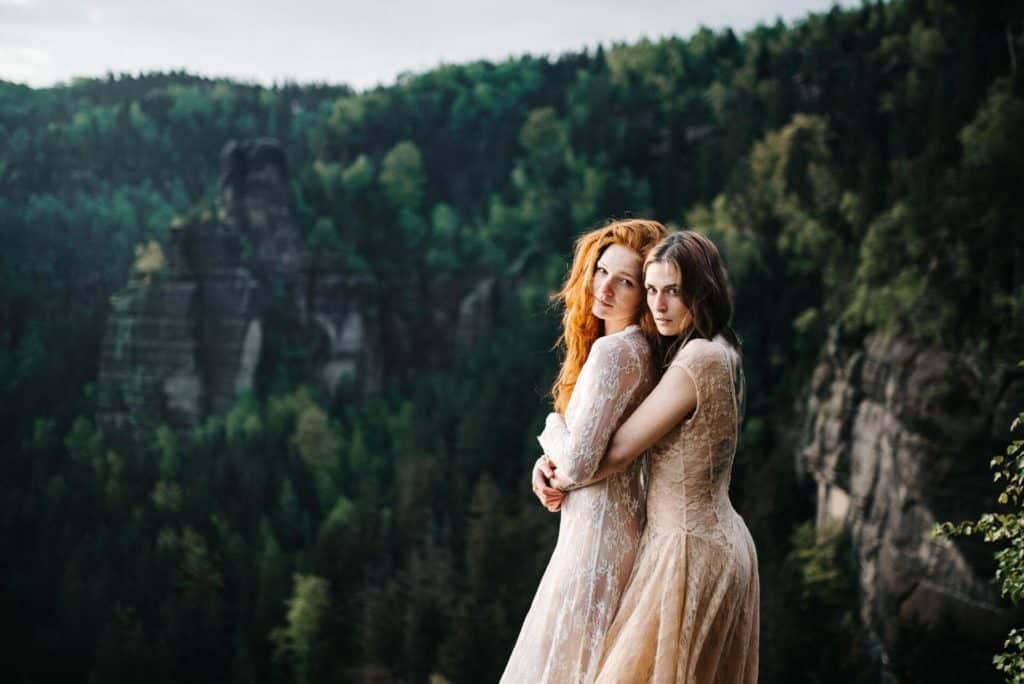
When did the review begin?
In 2018 The Law Commission began its review with the aim of updating the marriage law to provide all couples with a greater choice within a simple, fair and consistent structure, so they can have a legal wedding ceremony that is meaningful to them.
Information from the incredible Give Couples Choice Movement a movement run by Celebrant volunteers working tirelessly with the purpose of promoting the need for reform to the current outdated marriage laws states:
Many non-legally binding wedding ceremonies currently take place; a recent study estimated that Independent Celebrants in England and Wales conduct approximately 10,000 ceremonies each year and Humanist Celebrants around 1,000 ceremonies each year. Couples choose to have a Celebrant wedding because they want a meaningful wedding ceremony in the location of their choice. As things stand, they are required to complete the legal registration of marriage separately from their Celebrant ceremony. The Law Commission review is proposing that these ceremonies are legally binding.
Why should Celebrants and couples support these proposals?
The proposals put forward by the Law Commission would really help the smooth running of the marriage process whilst also giving couples a legal wedding ceremony that is meaningful to all couples no matter their background.
All couples deserve the right to choose the content of their ceremony, whether they have a belief, no faith, mixed faiths, spirituality or wish to include cultural traditions. Celebrants write and deliver bespoke, ceremonies that are tailor-made to each couple, reflecting their ideas, beliefs, values, and personalities. All couples should be able to choose an approved celebrant who is right for them, including both Independent Celebrants, Humanists and those belonging to other approved belief organisations to carry out their legal wedding ceremony.
It is so important that couples can choose where their wedding ceremony is held and should not be restricted to licensed venues or licensed structures.
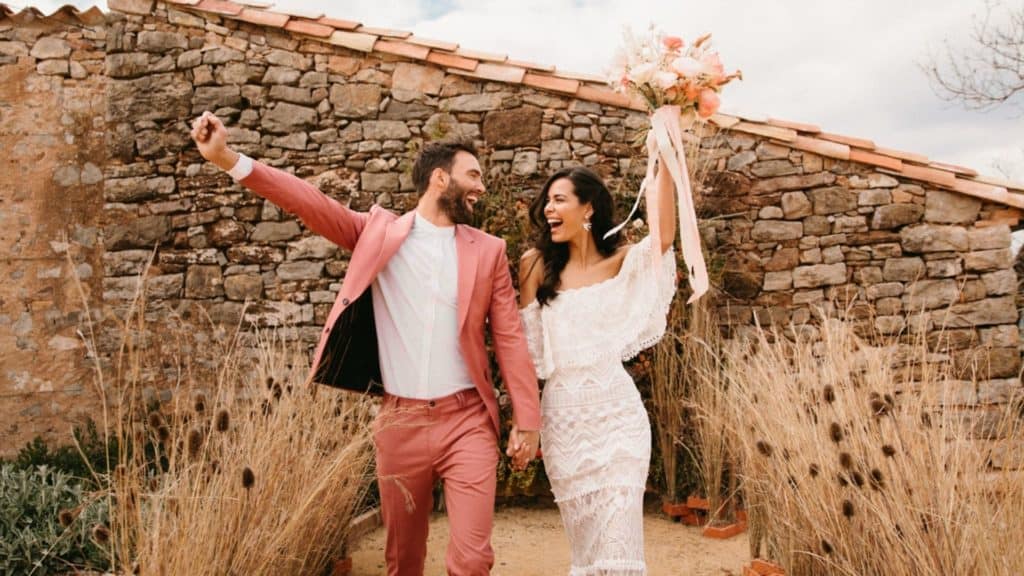
This law reform is a positive step to recognising the complexities of our society. The equal right for all couples to be legally married is absolutely crucial, however, the submission of these recommendations feels like a positive step toward equity; facilitating the opportunity for all couples to have access to that equal right.
You can review the full report here: https://www.lawcom.gov.uk/project/weddings/
subscribe
drop us your email and we'll send you beautiful ideas to inspire your perfect celebration
